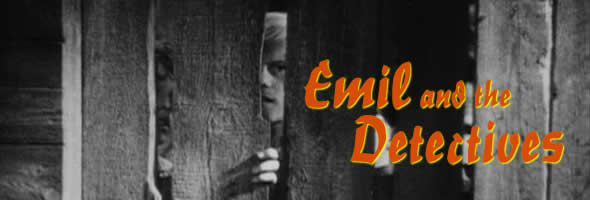
B&W, 1931, 69m.
Directed by Gerhard Lamprecht
Starring Rolf Wenkhaus, Käthe Haack, Fritz Rasp, Olga Engl, Hans Joachim Schaufuss
BFI (DVD) (UK R2 PAL)

B&W, 1931, 69m.
Directed by Gerhard Lamprecht
Starring Rolf Wenkhaus, Käthe Haack, Fritz Rasp, Olga Engl, Hans Joachim Schaufuss
BFI (DVD) (UK R2 PAL)
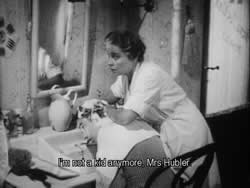 Best known as a bestselling German children's book by Erich Kästner
Best known as a bestselling German children's book by Erich Kästner 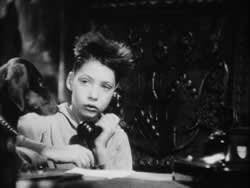 and a much-loved 1964 Walt Disney film, Emil and the Detectives has had a long and colorful life since its first publication in 1929, which essentially kick started the kid detective genre later found in favorites like Encyclopedia Brown, the Hardy Boys, and Nancy Drew. The first screen adaptation was actually made in Germany in 1931, with a screenplay involving Kästner and such future greats as Billy Wilder and (minus credit) Emeric Pressburger before he teamed up with Michael Powell.
and a much-loved 1964 Walt Disney film, Emil and the Detectives has had a long and colorful life since its first publication in 1929, which essentially kick started the kid detective genre later found in favorites like Encyclopedia Brown, the Hardy Boys, and Nancy Drew. The first screen adaptation was actually made in Germany in 1931, with a screenplay involving Kästner and such future greats as Billy Wilder and (minus credit) Emeric Pressburger before he teamed up with Michael Powell. 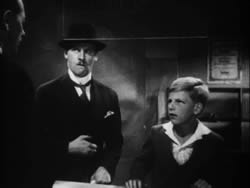 passages passing without dialogue and instead building both humor and tension through tight cutting and framing. The scene with Emil hiding
passages passing without dialogue and instead building both humor and tension through tight cutting and framing. The scene with Emil hiding 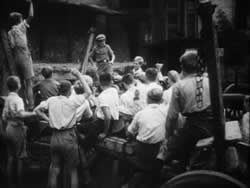 under a bed is a prime example, as are his jaunts across the city.
under a bed is a prime example, as are his jaunts across the city. ![]()